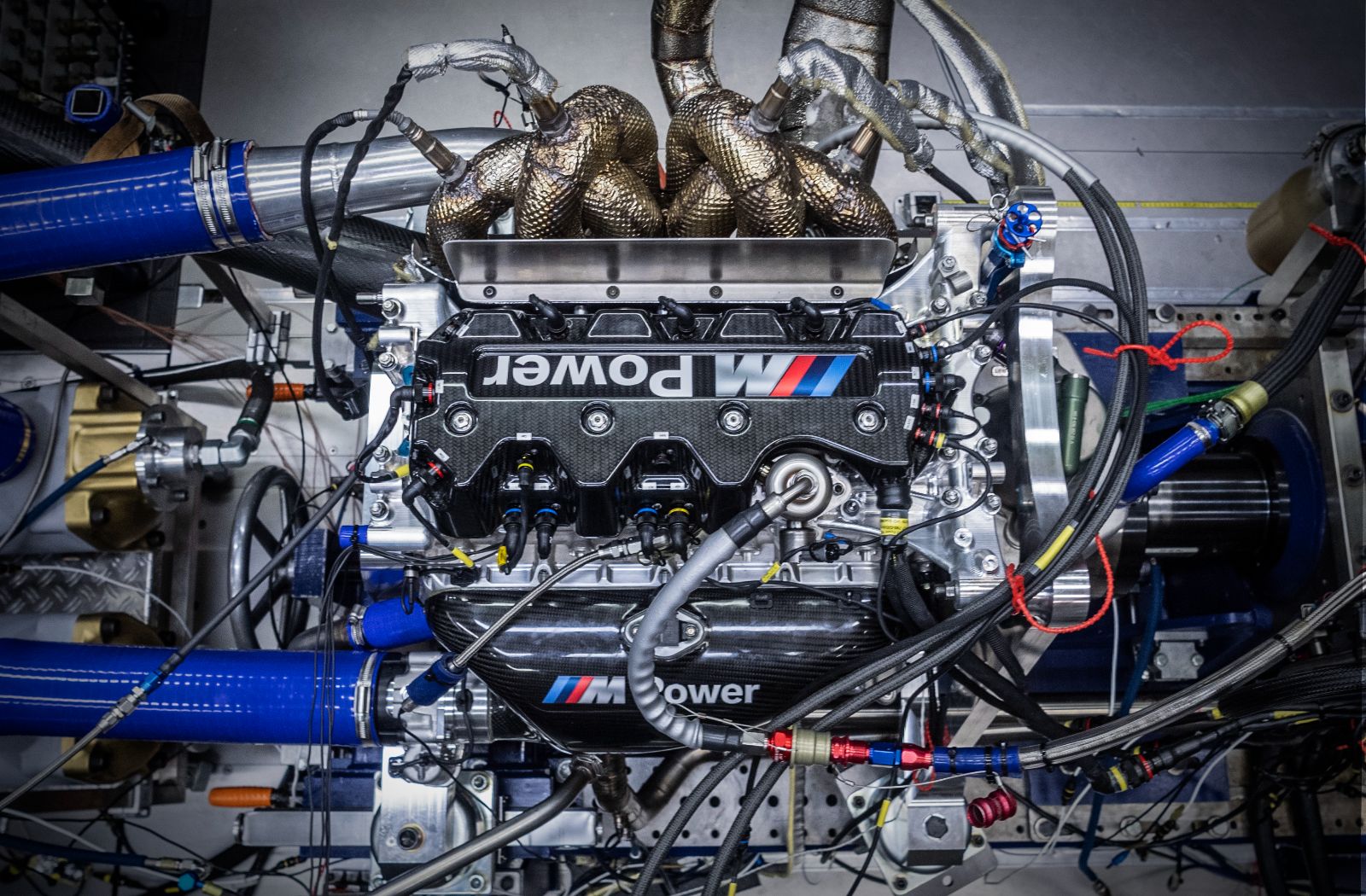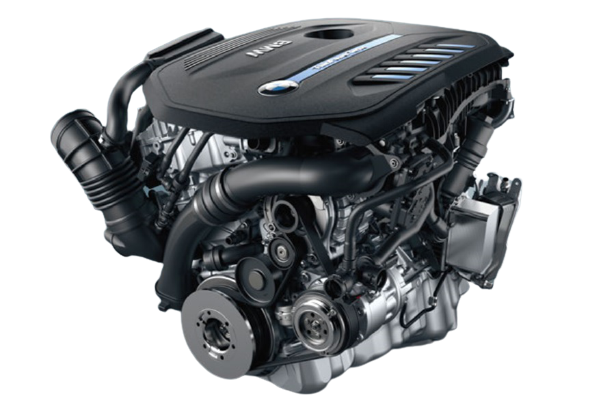A Comprehensive Guide to Comprehending BMW Engine Specifications
A Comprehensive Guide to Comprehending BMW Engine Specifications
Blog Article
Introducing the Intricacies of Next-Generation Power Units: a Deep Dive Into Advanced Engine Designs and Developments
As we stand on the precipice of a brand-new era in transport, the ins and outs of next-generation engine styles bid us to explore the cutting-edge technologies and technologies that guarantee to redefine the driving experience. Delving much deeper right into the realms of emission control, intelligent engine administration systems, and the perspective of power device advancement, we find ourselves on the cusp of a change that promises to reshape the landscape of wheelchair as we know it.
Evolution of Engine Materials

The shift in the direction of progressed engine materials has actually also made it possible for designers to develop engines with higher power outcomes while maintaining gas efficiency criteria. As an example, making use of light-weight products reduces the overall weight of the engine, causing improved gas economy and lower exhausts. Additionally, advancements in products innovation have actually enabled much better thermal monitoring within engines, resulting in enhanced reliability and long life.
Turbocharging and Supercharging Technologies
Just How do Turbocharging and Supercharging Technologies change engine efficiency and efficiency in contemporary vehicles? Supercharging and turbocharging are innovations that dramatically enhance engine efficiency by raising the amount of air intake right into the burning chamber. Turbocharging attains this by using a wind turbine driven by exhaust gases to pressurize the intake air, while supercharging utilizes a belt- or chain-driven compressor to accomplish the very same result.
These modern technologies make it possible for smaller sized, much more fuel-efficient engines to create power equal to bigger ones, recognized as downsizing. By forcing even more air right into the cylinders, turbocharging and turbo charging improve burning efficiency, resulting in enhanced horsepower and torque outcome without a substantial boost in engine dimension. This results in far better acceleration, hauling capacity, and overall driving efficiency.
Furthermore, turbo charging and turbocharging add to enhanced gas effectiveness by enabling the usage of smaller engines that take in much less fuel under regular driving conditions - bmw engine. This combination of boosted efficiency and efficiency has made turbocharging and turbo charging indispensable elements of lots of modern engine designs
Emission Control and Environmental Effect
With raising global issues pertaining to air quality and ecological sustainability, the implementation of discharge control technologies in vehicles plays a crucial duty in decreasing damaging pollutants launched right into the environment. Modern cars are outfitted with advanced emission control systems that aid minimize the ecological effect of automobile procedures. Catalytic converters, for example, are developed to convert hazardous gases such as carbon monoxide, nitrogen oxides, and hydrocarbons right into much less hazardous compounds like carbon dioxide and water vapor.
In addition, innovations in engine modern technology, such as the assimilation of exhaust gas recirculation systems straight from the source and selective catalytic reduction, have dramatically contributed to reducing emissions. These technologies operate in tandem to maximize burning performance and lessen the release of harmful contaminants right into the air. In addition, the growth of crossbreed and electrical cars stands for a vital action in the direction of minimizing the total environmental footprint of the transport field.
Intelligent Engine Monitoring Solution

In addition, these systems allow vehicles to fulfill rigid discharges standards without endangering efficiency, giving an extra environmentally friendly driving experience. The assimilation of artificial intelligence and device understanding abilities in engine administration systems remains to press the limits of what is feasible, resulting in further enhancements in performance, integrity, and overall automobile efficiency. bmw engine. As vehicle innovation advances, smart engine management systems will certainly play an important role in forming the future of transport in the direction of an extra sustainable over at this website and efficient direction
Future Trends in Power Device Development
As intelligent engine administration systems lead the method for improved control and optimization in contemporary vehicles, future trends in power device growth are positioned to redefine the landscape of vehicle propulsion modern technologies. These alternate power resources use boosted performance and performance while lining up with rigorous environmental guidelines.
One more substantial trend is the assimilation of advanced products and manufacturing methods. Light-weight materials such as carbon fiber and aluminum are being made use of to decrease total vehicle weight, boosting fuel effectiveness and efficiency. Additionally, improvements in 3D printing and additive manufacturing are allowing the manufacturing of intricate engine parts with higher precision and resilience.
In addition, expert system and artificial intelligence are playing an important function in optimizing power device efficiency. These innovations enable real-time tracking and flexible control, causing a lot more effective and reputable power distribution. Generally, future fads in power system development are tailored in the direction of effectiveness, performance, and sustainability, driving the vehicle sector in the direction of a new era of propulsion technologies.

Verdict
To conclude, the improvements in engine products, turbocharging, discharge control, and intelligent monitoring systems have this contact form actually paved the way for next-generation power systems. These technologies have not only improved performance and effectiveness however additionally minimized environmental impact. As innovation proceeds to evolve, future trends in power unit growth are likely to concentrate on more enhancing sustainability and enhancing power outcome. The complex layouts and advancements in contemporary engines showcase the recurring development of automotive technology.
Exploring the dynamic innovations in engine products has actually been essential in improving the performance and efficiency of modern engines. Over the years, the evolution of engine products has actually played a crucial duty in pushing the limits of what engines can attain.The change in the direction of progressed engine products has actually likewise made it possible for designers to make engines with higher power outputs while keeping fuel performance standards.The implementation of intelligent engine administration systems in contemporary automobiles has actually revolutionized the method engines are controlled and enhanced for performance and effectiveness. By collecting information in real-time and evaluating it with advanced formulas, intelligent engine management systems can adapt to driving styles, environmental factors, and engine wellness to maximize power outcome while minimizing fuel consumption and emissions.
Report this page